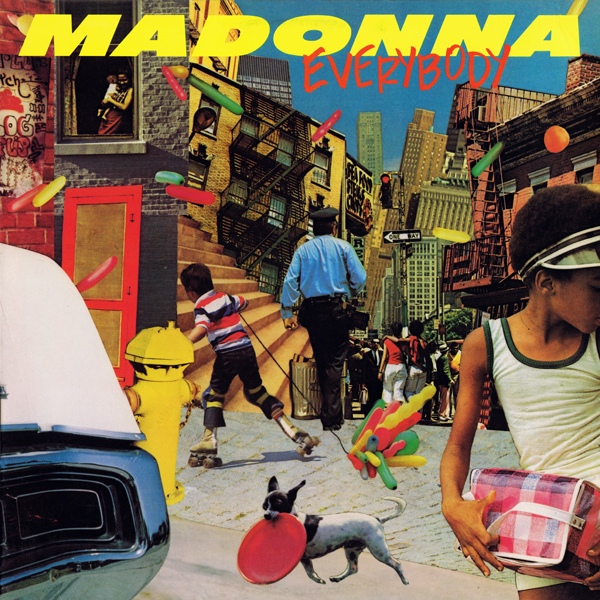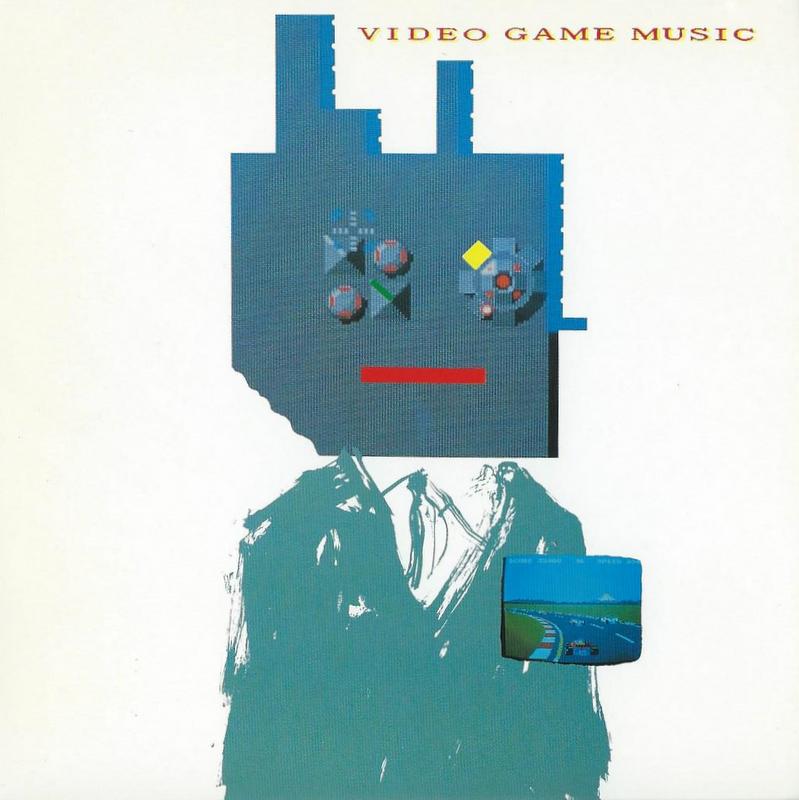Game Music Revue: Darius – Taito Game Music Vol. 2
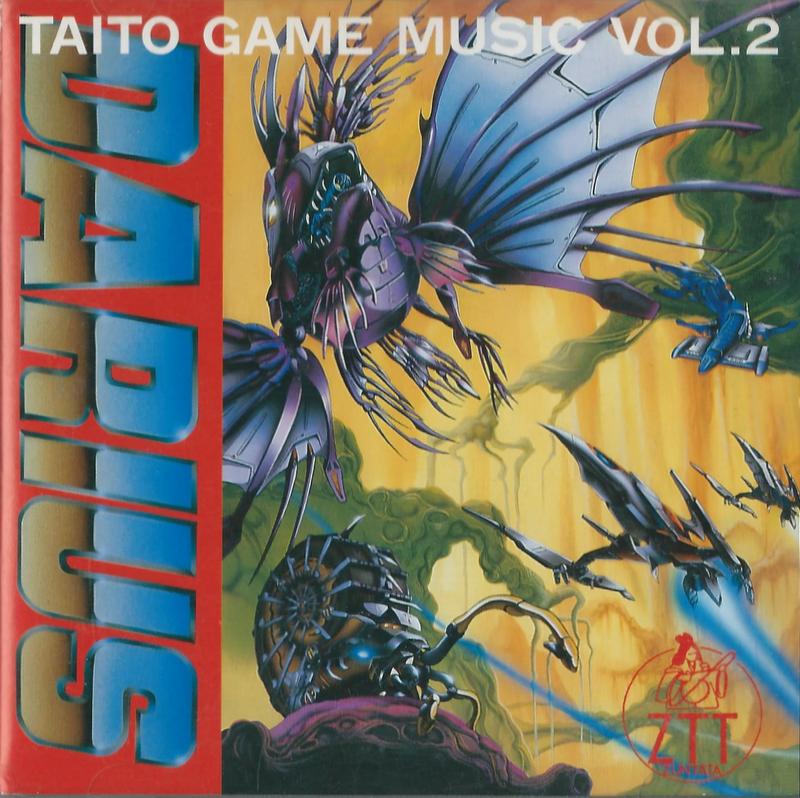
Darius – Taito Game Music Vol. 2
- Credited Composer: Zuntata
- Released June 25, 1987
- Label: G.M.O./Alfa Records
- VGMdb Information Page
If Gradius is the grandfather of side-scrolling shoot-em-ups, then Darius is it’s weird uncle.
(In case you’re wondering, in this analogy R-Type is the cousin with the cool toys who won’t let you play with them.) Continue reading
Scrunged: Candlebox
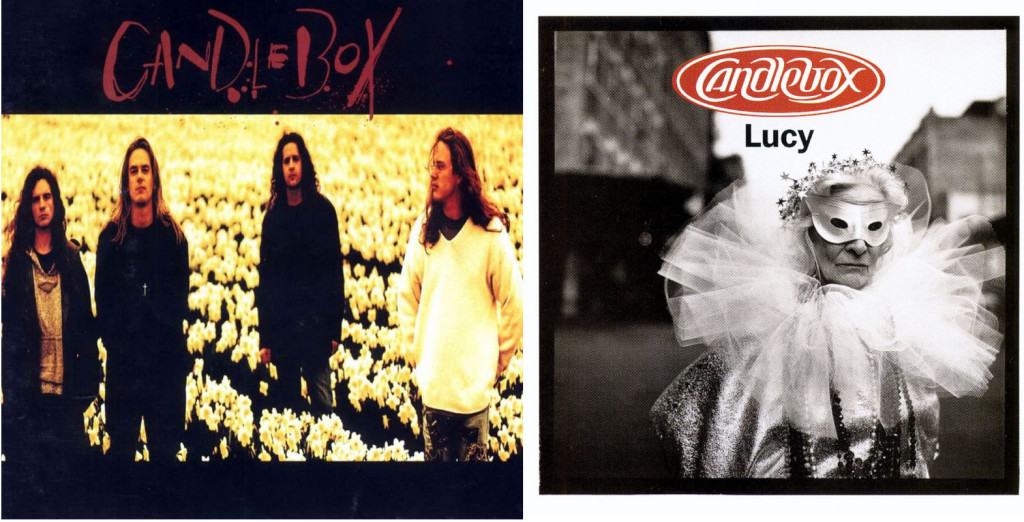
Scrunge (second-rate rip-off grunge) is a largely forgotten genre, and every few weeks I’m going to examine a scrunge act or two and see if they deserve a second chance. Today’s band: Candelbox.
It’s really hard to write about Candlebox. Continue reading
The Complete Guide to Madonna Remixes – Part 1
I’m a big fan of 12″ singles – the maxi-singles largely of a bygone era that include not only B-sides, but alternate mixes and edits of my favorite tracks. And when it comes to 12″ singles, there are a few artists I obsess over, but none more than Madonna.
Madonna is the greatest solo artist of my generation, and her amazing and substantial catalog of singles backs that up; “Vogue,” “Like A Virgin,” “Material Girl,” “Hung Up,” “Crazy For You,” the list of unforgettable classics is nearly endless. And nearly all of these legendary tunes have remixes and edits associated with them, mixes that sometimes radically alter a song or make it even better.
And they can be a real pain in the ass to find. While many artists who started in the 80s have embraced the retrospective box set and collection model, releasing all (or at least the best) versions of their singles in easy-to-buy formats, Madonna’s singles discography remains stubbornly scattered across countless records, CDs and cassette tapes. And since a lot of her songs have a shockingly large number of remixes (easily sometimes going into the double digits) this can be a real problem to those obsessive fans like myself, who want every version possible.
This list is an attempt to make it a little easier to track down these mixes, by cataloging every official mix and edit of every song Madonna has released as a single. It is a work in progress, and I am not immune to making mistakes, so if you feel I that I have made an error, please detail it in the comments and I will do my best to fix it. I’m also not going to detail exactly where you can find each mix, Discogs can be your guide for that, I’m just letting you know they exist.
I hope this list is helpful to my fellow obsessive Madonna collectors.
And I hope my friends don’t think I’m insane for putting this together.
“Everybody” (1982)
Album Version [4:57] – Available on any pressing of Madonna’s self-titled debut that was released before 2001. Since then it has been replaced by the 12″ remix.
Celebration Edit [4:12] – An edited version of the original 12″ remix. On Celebration.
Dub [9:23]– Available on many different 12″ singles.
Original 12″ Version [6:02] – Unlabeled as a remix. This is the version that is on all current editions of the self-titled album. It can also be found on US 12″ singles and the CD single.
Instrumental [6:17] – an edit of the nine-minute dub version, only available on the Italian 12″ single.
UK Remix [6:16] – Unlabeled remix only available on the UK 12″ single.
UK Remix Dub [5:59] – B-side to the UK 12″ single.
UK Remix Edit [3:20] – Unlabeled remix only available on the UK 7″ single.
UK Remix Dub Edit [4:40] – B-side to the UK 7″ single.
You Can Dance Remix [6:44] – For the remix album You Can Dance. Included on all versions of the album regardless of format, is mixed as part of a continuous mix.
You Can Dance Remix Edit [4:34] – Shortened edit created exclusively for the You Can Dance (Single Edits of Album Remixes) promotional 12″ . Continue reading
Tangerine Dream Platinum SHM-CD Reviews
I own more albums by Tangerine Dream than I do any other artist, although that speaks more to their insane output than anything else. Excluding their numerous (and typically fantastic) soundtracks, the Tangerine Dream albums that I treasure the most are their first four for Virgin Records: Phaedra, Rubycon, Ricochet and Stratosfear. It was with these records that the band moved away from their ultra-experimental krautrock beginnings and into a much more electronic/ambient space that saw them through most of their career.
Now, these four albums have been re-released in Japan as “high resolution” formats; SHM-CD, Platinum SHM-CD and SHM-SACD.
And I realize that most of your eyes have probably just glossed over so I should probably go over those really quick.
- SHM-CD stands for “Super High Material CD,” and use a different polycarbonate material that supposedly results in higher sound quality with reading errors.
- Platinum SHM-CDs are the same, but instead of using a standard aluminium coating they use platinum. This also supposedly boosts audio quality.
- SHM-SACD are Super Audio CDs, an entirely different audio format that is not compatible with standard CD players. These discs can hold more information and playback surround sound audio. They also supposedly sound better than traditional CDs.
Notice that I’m saying “supposedly” a lot. That’s because most of this is audiophile snake oil bullshit. SHM-CDs have never been known to sound notably better than traditional discs, and while I don’t know much about their platinum variants, I can’t imagine the change in coating makes that much of a difference. SACDs have their own benefits of course, the added storage space and surround sound capabilities are nice bonuses, but I’ve never been able to hear the difference between an SACD and a regular disc, a view that science backs me up on.
But I still bought the platinum SHM-CDs for these four titles. Why? Because while the science behind “SHM” is mostly balderdash, SHM-CDs can often sound better than their regular CD or digital counterparts. This is because they frequently use different masters that place more of an emphasis on dynamic range and preserving the feel of the original recording, and not on mucking with the source material or making them as loud as possible.
I also wanted an excuse to write about Tangerine Dream. Continue reading
Scrunged: Bush’s Sixteen Stone
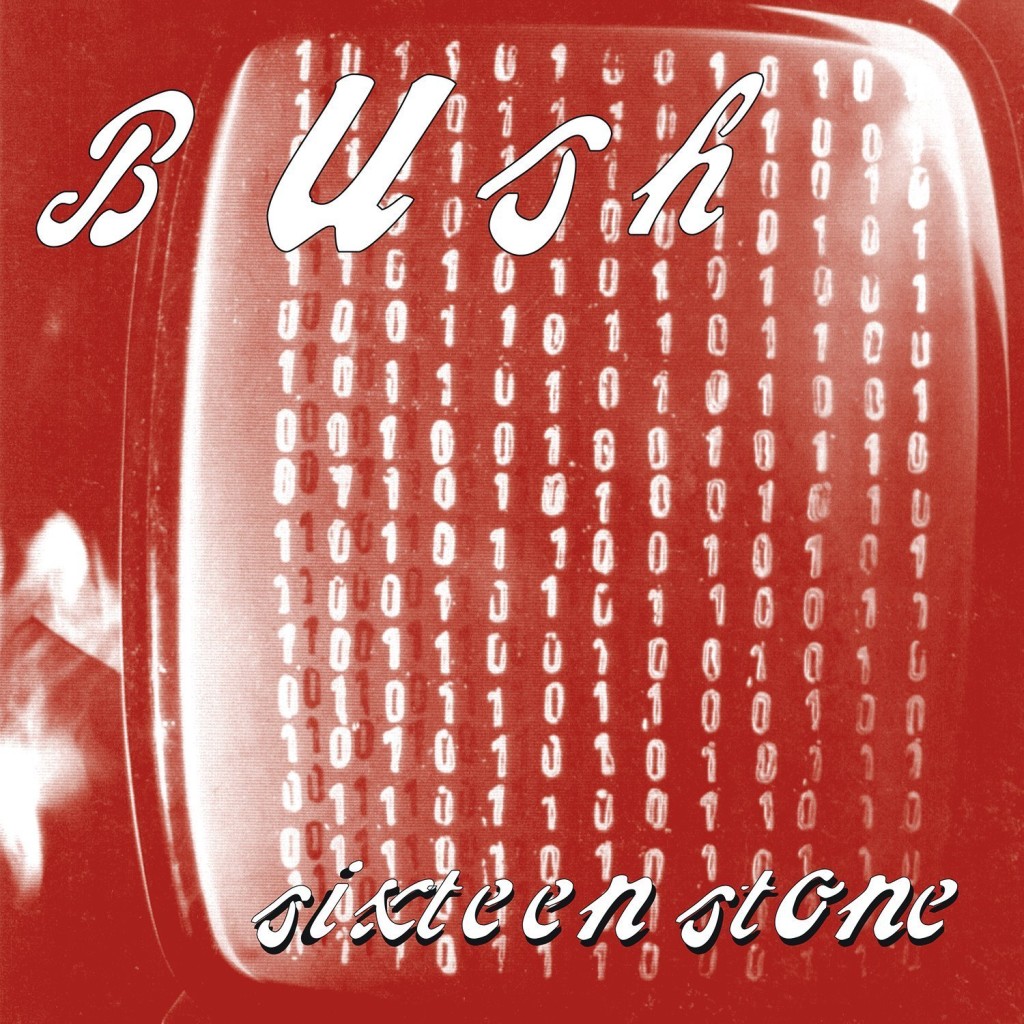
Scrunge (second-rate rip-off grunge) is a largely forgotten genre, and every few weeks I’m going to examine a scrunge act or two and see if they deserve a second chance. Today’s band: Bush
When I was 15, Bush were on tour with No Doubt and the Goo Goo Dolls. My school seemed to be split into three camps: people who were going to that show; people who desperately wanted to go to that show; and people who were livid and angry that such a show existed and that anyone would possibly find any of those bands worthwhile in the least.
All of these facts blow my mind, because Bush is a band that I cannot imagine anyone having any strong feelings about in any way whatsoever. Continue reading
Game Music Revue: The Konamic Game Freaks
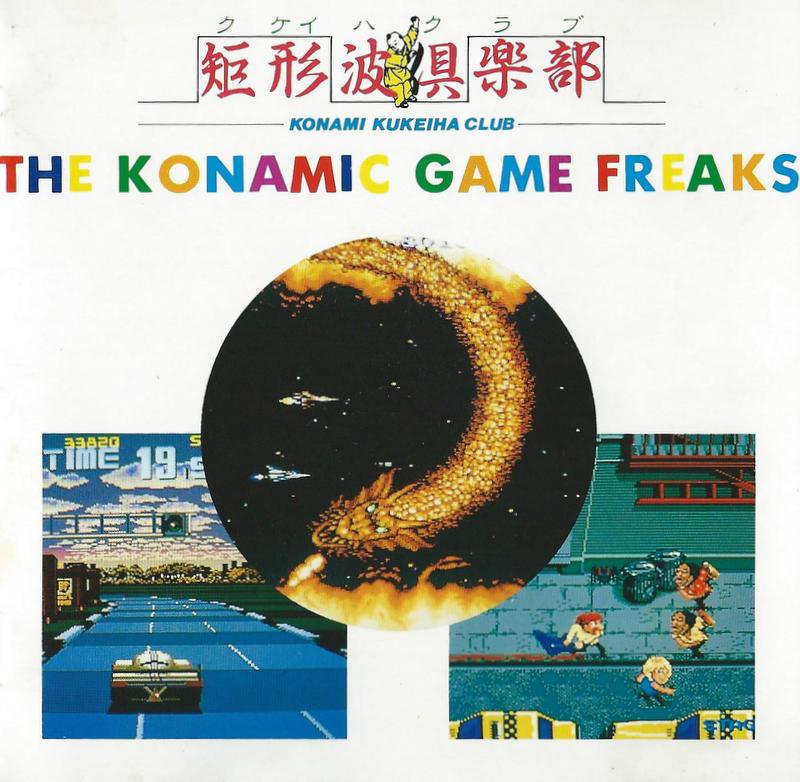 Konamic Game Freaks (Compilation)
Konamic Game Freaks (Compilation)
- Credited Composer: Konami Kukeiha Club
- Released: March 25, 1987
- Label: GMO/Alfa
- VGMdb Information Page
Scrunged: Toadies’ Possum Kingdom
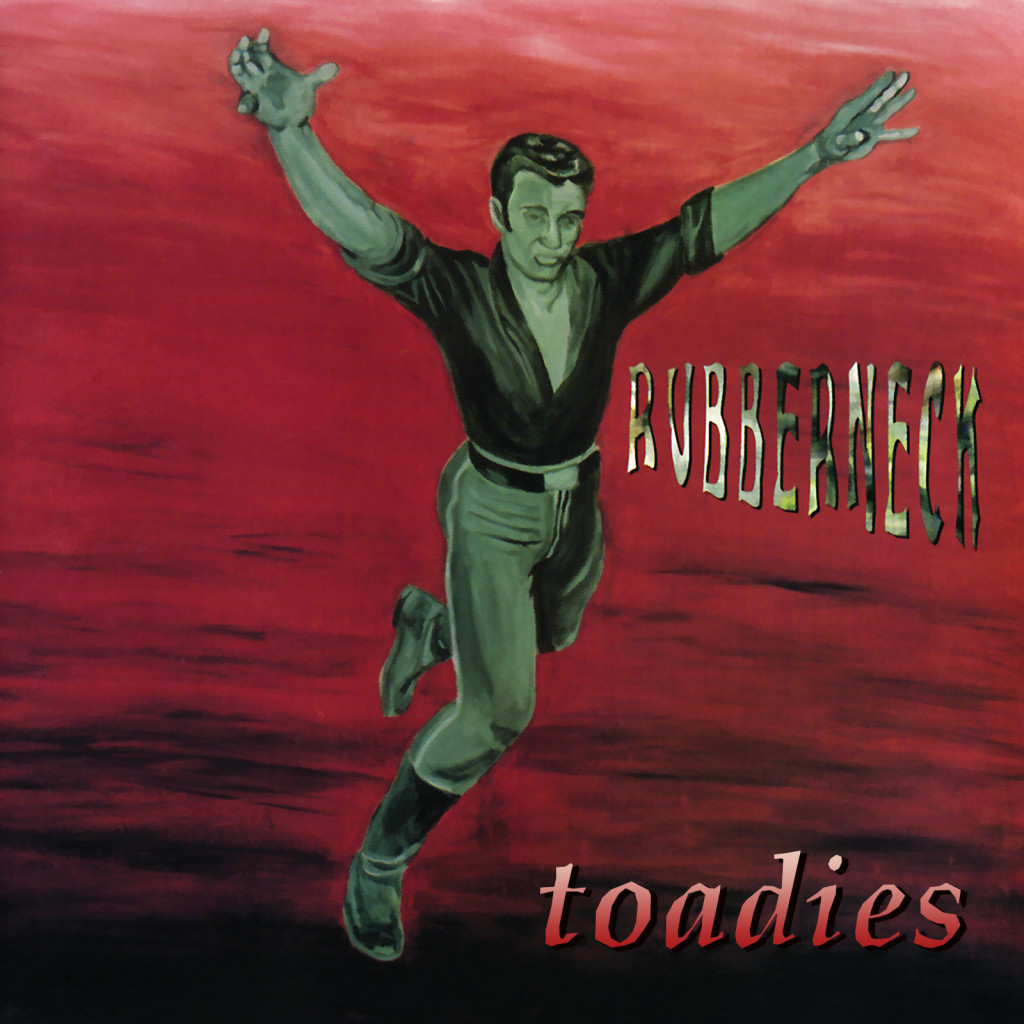
Scrunge (second-rate rip-off grunge) is a largely forgotten genre, and every few weeks I’m going to examine a scrunge act or two and see if they deserve a second chance. Today’s band: The Toadies.
One thing about grunge that most scrunge acts seemed to miss the point on was that a lot of it was really dark and creepy in a menacing way. Nirvana frequently sang from the point of view of serial killers and rapists. Soundgarden’s metal influences frequently came to life with nefarious tracks like “Gun,” and of course there was the entire Alice In Chains discography, with its unhealthy focus on heroin and the joys that come with it. Shit, even Pearl Jam would often dive into the deep end of the disturbing with tracks about child abuse, incest, and murder.
You didn’t see Bush do shit like that. STP did on occasion with songs like “Sex Type Thing,” but they had too many love songs to really be all that down in the dumps. Sometimes Paw came close with their debut album, but while they nailed the mood of grunge, that was about all they got right.
No, the only scrunge act that really hit grunge’s darkside was The Toadies.
Makes sense, they are from Texas after all. Continue reading
Game Music Revue: Video Game Music (1984)
Since moving to Japan I have bought a lot of game music. Seriously, like probably too many. In my travels and adventures in buying these LPs and CDs, I’ve discovered that there isn’t a lot in the way of editorial information online in regards to these releases. Sure, there’s the VGMDB, but that’s just factual info on content, I mean reviews and more in-depth information.
While I don’t consider myself the end-all expert on game music (my lack of knowledge/interest in RPGs kind of makes that impossible) I’d like to think my obsessive collecting has given me some credence to talk about these releases. So I present to you the Game Music Revue, where I will take a look at all the crazy, bizarre and insane (as well as the boring, mundane and not very good) game music releases that I’ve bought and continue to buy in this wonderful country.
And I felt that it would be best to start at the beginning.
Vinyl Review – The Music Of Grand Theft Auto V
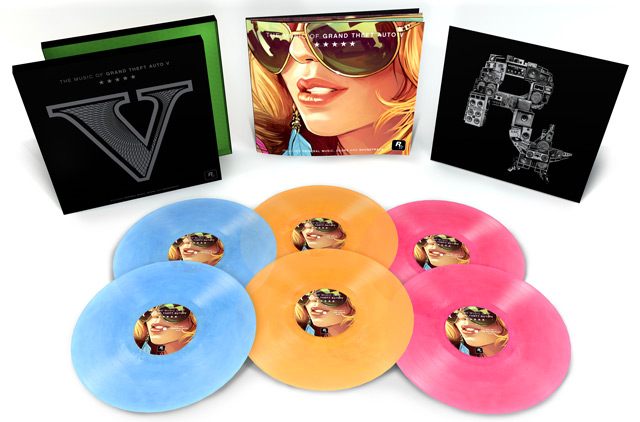
Grand Theft Auto V was one of the biggest and best games of 2013. Its re-release on the PS4 and Xbox One also made it one the marquee titles of 2014, and it’s upcoming PC release might make it a standout release of 2015 as well. It’s a rare feat for the same game to be a newsmaker three years in a row, but GTAV certainly deserves it. Despite its heavily problematic elements, which includes a wicked misogyny streak and more than a few disgusting digs at minorities, the game is an absolute blast to play. This is in large part due to its amazing immersive world, which in itself is largely due to the stellar in-game soundtrack. Continue reading
Vinyl Review: Frankie Goes To Hollywood – Inside The Pleasuredome

Let’s make a list, if my nightmare of a Facebook feed is any indication, the Internet goes gaga for lists.
Top Ten Albums of the 80s. All genres, hit or no hit, anything that came out between 1980 and 1989. Here’s mine:
- Prince – Purple Rain
- Game Theory – Lolita Nation
- Frankie Goes To Hollywood – Welcome To The Pleasuredome
- Michael Jackson – Bad
- Bruce Springsteen – Born In The U.S.A.
- The Stone Roses – s/t
- Sisters Of Mercy – Floodland
- Def Leppard – Hysteria
- David Bowie – Scary Monsters (And Super Creeps)
- The Pointer Sisters – Break Out
Yeah, that’s right, the Pointer Sisters, but that’s a discussion for another day.
That’s my list. Of course, ask me tomorrow and I might substitute Madonna’s Like A Prayer for Bad. Ask me again and I might remove Sisters of Mercy and slide in some Yellow Magic Orchestra. Get me on a grunge kick and I’ll probably replace a couple of the albums in there for Nirvana’s Bleach and at least one Pixies record. And Daydream Nation would probably go in there a least a few days of the week too.
It’s a nebulous list, but the top three will never change. Prince’s Purple Rain is the greatest album of the 80s, and I don’t think that’s an opinion that would garner me much flack. Lolita Nation is a strong number two, and while it’s not a popular choice, I know of some critics that have declared that record to be one of the greatest of all time, not just the 80s, so I know I’m not alone there either.
But Welcome To The Pleasuredome is probably an odd choice to most people, especially to any Americans who view Frankie as nothing more than a cheesy one-hit wonder ala Kajagoogoo or A Flock of Seagulls, but they’re wrong. The truth is that Welcome To The Pleasuredome isn’t just one of the greatest albums of the 80s, it is, without question, one of the most accurate documents about what living in the early 80s was all about.
